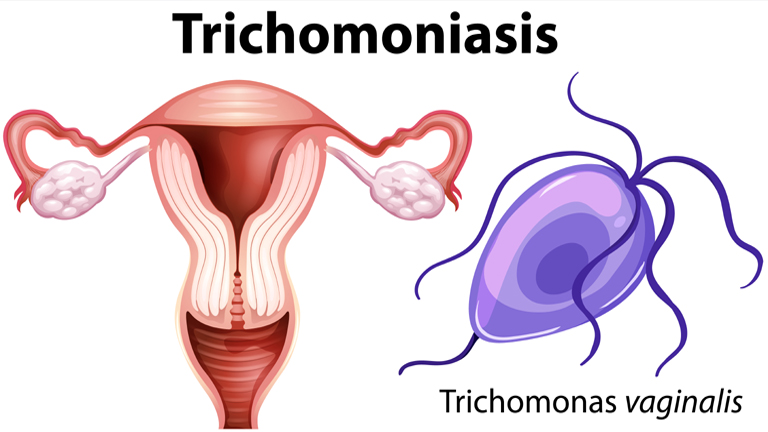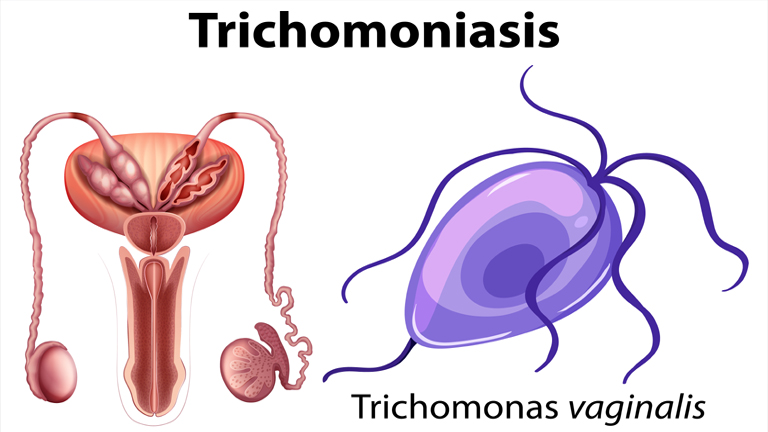Trichomoniasis is a common sexually transmitted infection (STI) that affects millions of people each year, yet many remain unaware they have it due to its often subtle symptoms. Left untreated, it can lead to more serious reproductive health issues, especially in women. This guide explores what causes trichomoniasis, its symptoms in men and women, and how to treat and prevent reinfection effectively.
Must Check: Gonorrhea Causes
What Causes Trichomoniasis?
Trichomoniasis is caused by a protozoan parasite called Trichomonas vaginalis. It is primarily transmitted through sexual contact, including vaginal, oral, and anal sex. The parasite lives in the urogenital tract and is spread via the exchange of infected bodily fluids.
How Trichomoniasis is Transmitted:
-
Unprotected vaginal sex is the most common route of transmission.
-
It can spread through genital-to-genital contact, even without ejaculation.
-
Sharing sex toys without proper cleaning can also increase the risk.
-
Rarely, it can spread through moist objects like wet towels or swimsuits, although this is uncommon.
Who Is at Risk?
-
Individuals with multiple sexual partners
-
People who do not use condoms consistently
-
Those with a history of other STD symptoms
-
Women are more likely than men to show symptoms, increasing their risk of complications.
Common Symptoms of Trichomoniasis in Men & Women
Trichomoniasis symptoms can vary widely and, in many cases, may be completely absent. However, when symptoms do appear, they differ between men and women.
In Women:
-
Foul-smelling vaginal discharge (often greenish-yellow)
-
Vaginal itching or irritation
-
Burning sensation during urination
-
Pain during intercourse
-
Vaginal infection signs such as inflammation and redness
In Men:
-
Burning sensation after urination or ejaculation
-
Penile discharge
-
Irritation inside the penis
-
Many men may carry the infection without any noticeable STD symptoms
Complications If Left Untreated:
-
Increased risk of contracting or spreading HIV
-
Pelvic inflammatory disease (PID) in women
-
Premature delivery or low birth weight in pregnant women
-
Prostate problems in men
Effective Treatments & How to Prevent Reinfection
Treatment for Trichomoniasis
The good news is that trichomoniasis is highly treatable, typically with a short course of antibiotics. The most commonly prescribed medications include:
-
Metronidazole treatment (Flagyl) – A single dose or a 7-day course
-
Tinidazole (Tindamax) – Alternative to metronidazole, often used if resistance is suspected
It is crucial that both partners get treated simultaneously to prevent reinfection. Avoid sexual activity until the treatment is completed and symptoms have resolved.
💡 Expert Tip: Never consume alcohol while taking metronidazole or tinidazole. It may cause severe nausea, vomiting, and headaches.
How to Prevent Reinfection:
-
Use condoms consistently and correctly during sexual activity.
-
Limit sexual partners and ensure mutual monogamy.
-
Regular STI screenings, especially if you or your partner has multiple partners.
-
Avoid sharing sex toys, or sanitize them between uses.
-
Complete the full course of antibiotics, even if symptoms go away early.
When to See a Doctor:
-
If you notice unusual vaginal or penile discharge
-
Persistent itching, burning, or pain during sex
-
After unprotected sex with a new partner
-
If your partner has been diagnosed with a vaginal infection or STD symptoms
Conclusion
Understanding trichomoniasis is essential for maintaining good sexual health. Though often overlooked due to its subtle signs, it can have long-term health implications if left untreated. Thankfully, with early diagnosis, effective metronidazole treatment, and smart prevention strategies, you can manage the infection and avoid complications.
If you suspect you may have trichomoniasis or another STI, consult a healthcare professional promptly. Early intervention and open communication with your partner can prevent the cycle of reinfection and protect your reproductive health.
FAQs
1. Can trichomoniasis go away on its own?
No, trichomoniasis requires prescription antibiotic treatment. It does not resolve without medical intervention.
2. Can you get trichomoniasis from a toilet seat?
It’s extremely unlikely. The parasite cannot survive long outside the human body.
3. Is trichomoniasis more serious in women?
Yes, it can lead to reproductive issues like PID and complications during pregnancy if untreated.
If you’d like this content formatted for a blog post (with HTML tags or WordPress-ready formatting), just let me know!


